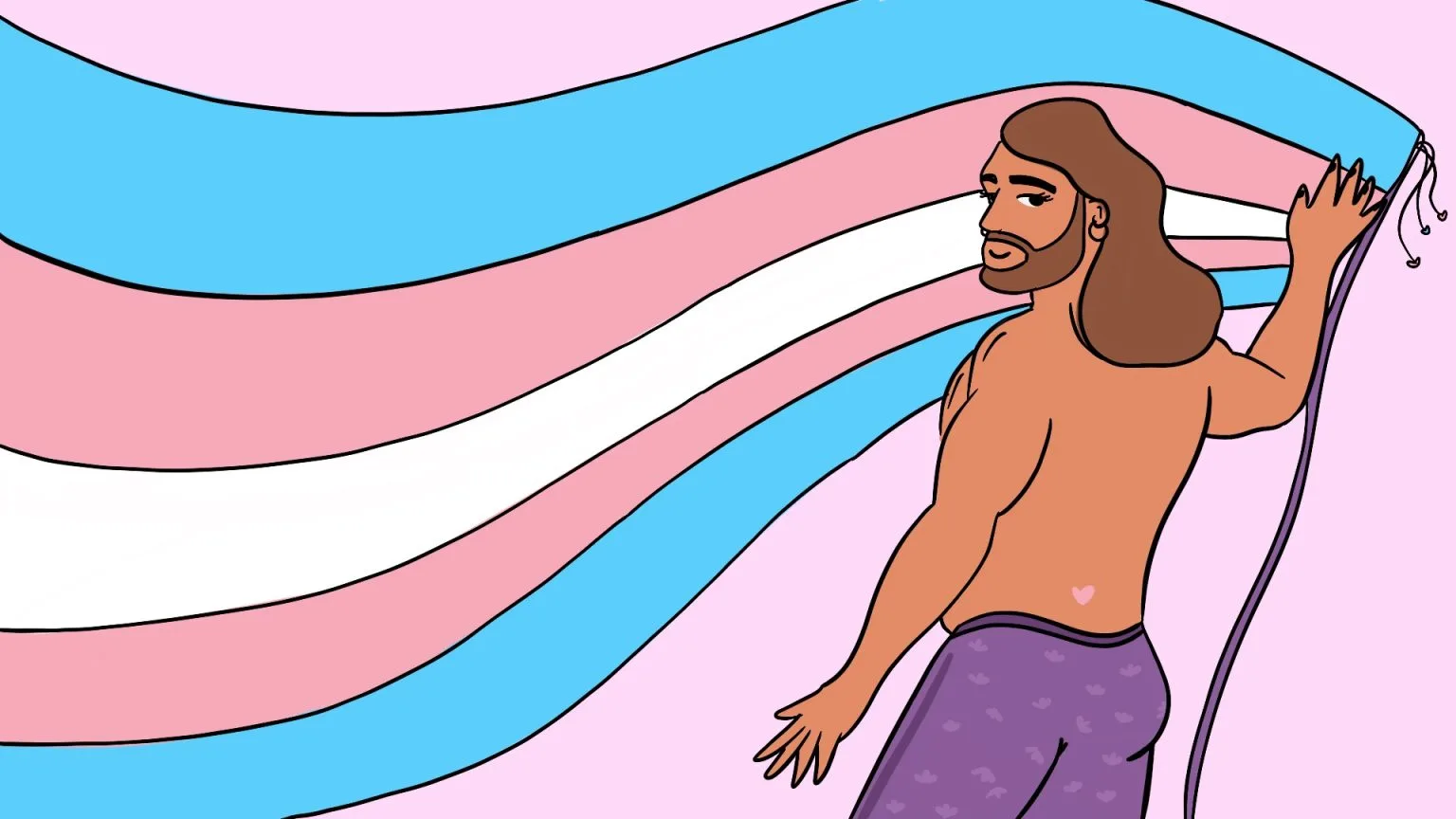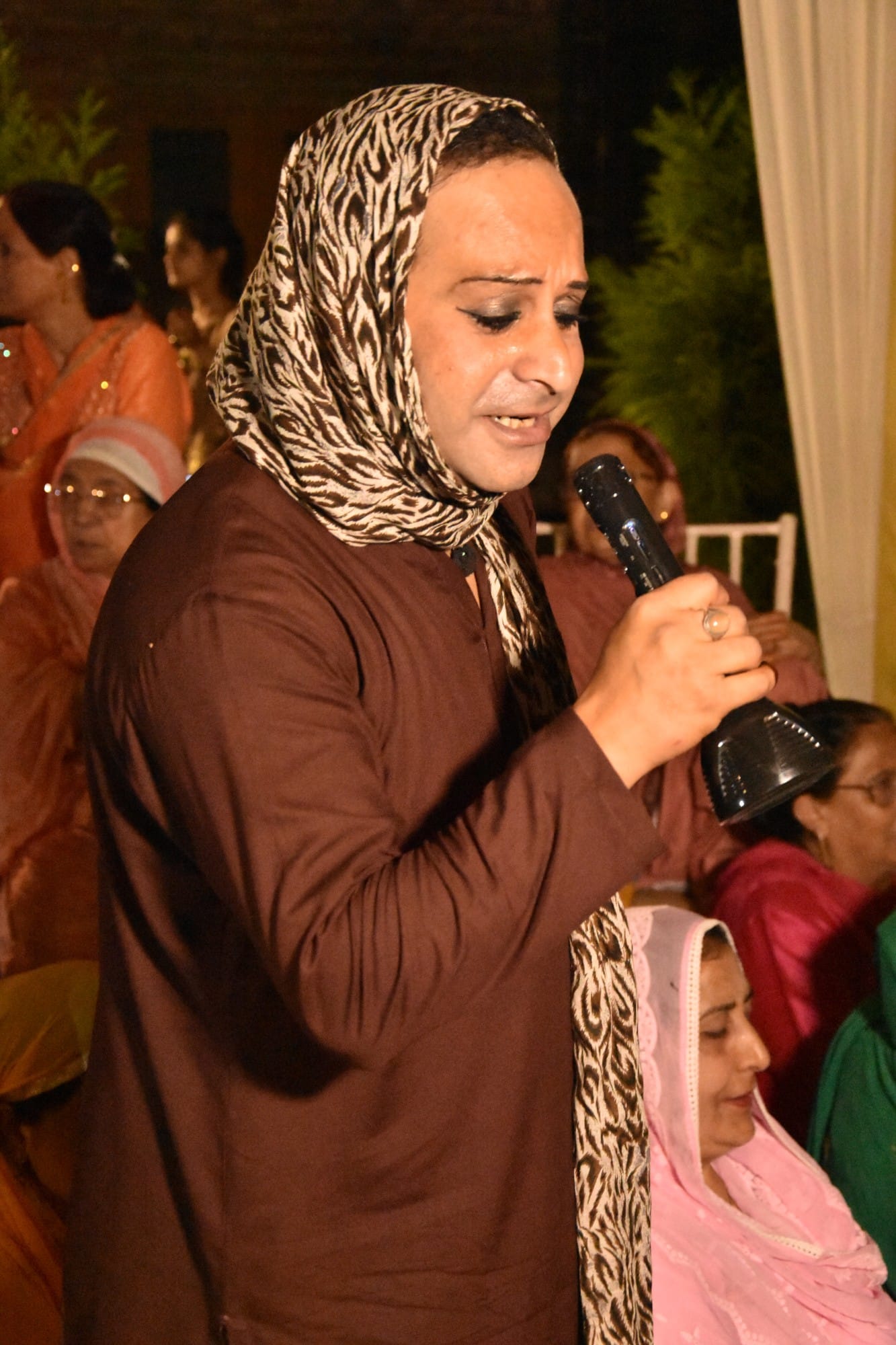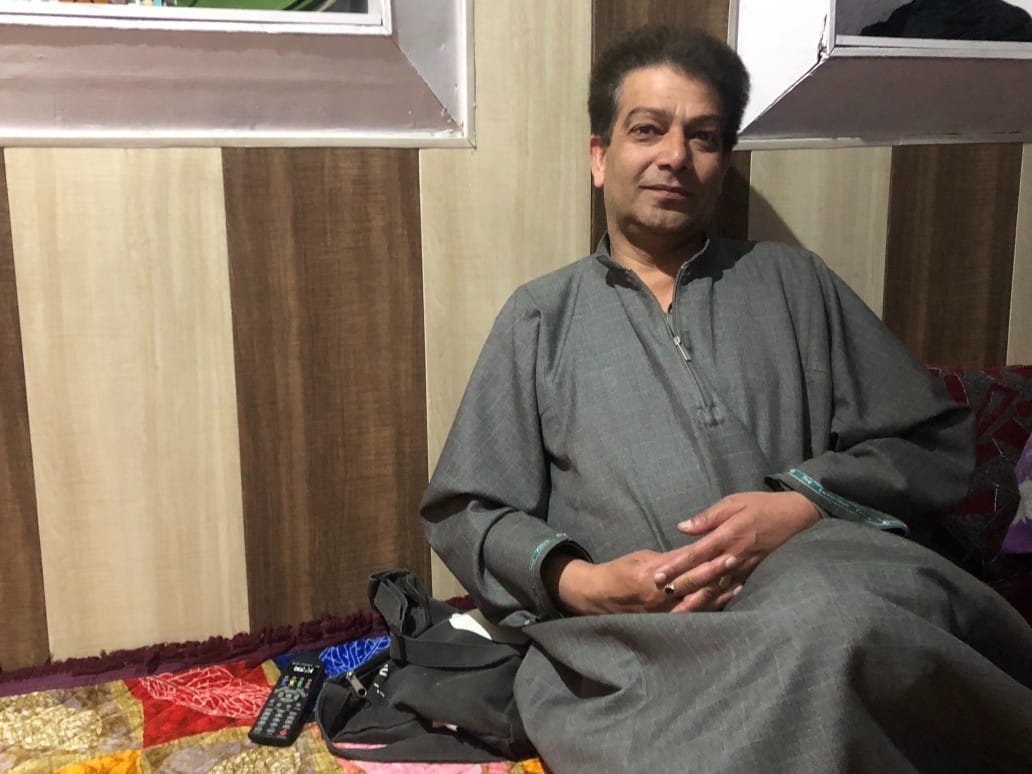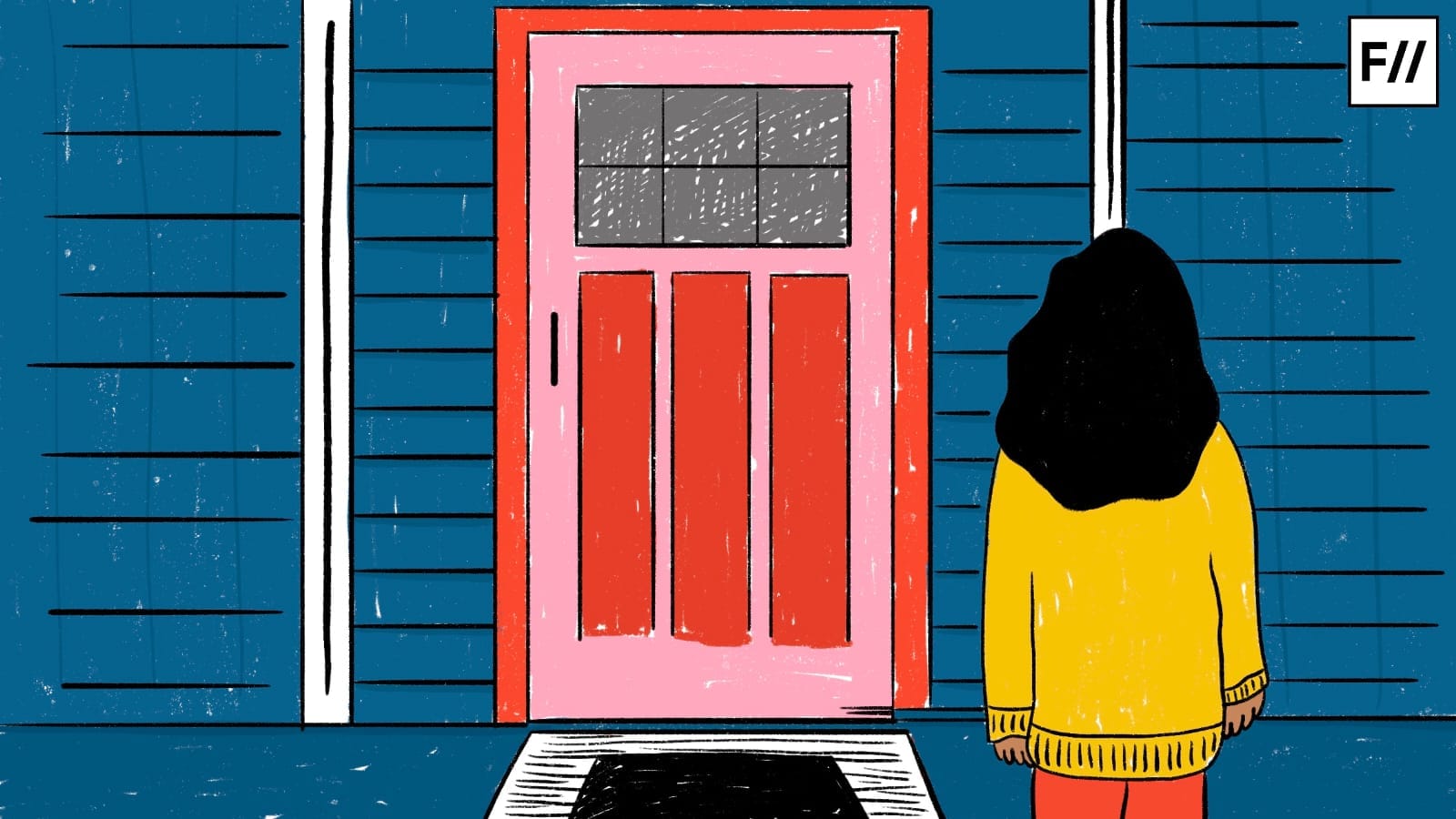Srinagar, May 10: When Sameer Ahmad heard about the government’s new policy of free bus rides for women, the 42-year-old who identifies as a transgender woman, celebrated the move. But her celebration soon began to ebb.
Early in April this year, the Jammu and Kashmir government announced free bus rides for women, but didn’t include the region’s transgender community, who are an economically, educationally, and socially deprived community in Kashmir, activists and researchers say.
‘I felt deeply disappointed,‘ says Dr. Aijaz Ahmad Bund, LGBTQIA Activist and Assistant Professor at Hr. Education Department when he heard that the scheme offers free bus rides to women across J&K, but excludes the transgender community.
‘It felt like a missed opportunity to support a marginalised community that continues to fight for basic recognition and dignity,’ says Dr. Bund.
‘While the scheme is a progressive step towards empowering women, the exclusion of transgender individuals depicts a lack of understanding and inclusivity,‘ Dr. Bund adds.
‘Transgender people, especially trans women, often face severe financial and social hardships, and they deserve equal access to such benefits,‘ Dr. Bund maintains.

Sameer Ahmad, once known as the ‘nightingale of Kashmir’ was pushed back after she developed serious cardiac issues four-years ago. Three years back, as Sameer came out after taking a bath, she felt heaviness in her chest. Dripping with sweat, Sameer fell unconscious, she recalls. Seeing Sameer’s condition, her mother phoned Sameer’s co-workers who rushed Sameer to the hospital, where she was diagnosed with a minor stroke and a stud was inserted in her heart.
‘The Doctors asked me to refrain from singing, dancing, or even speaking in a high tone. That was the end of my career, and of my livelihood,’ laments Sameer as she pulls a quilt over legs and covers the rest of her body with it.
Sameer needs to visit the doctor for weekly check-ups.
‘I thought the new policy would provide me some relief in transport cost, as the weekly visit to doctor strains the already stressed wallet,‘ Sameer told FII.
Besides inclusion in the free bus rides scheme, the transgender community expected much more from the current J&K government, the senior community members said. ‘We expected more because during the time of elections, the candidates from the ruling party visited our community members and promised many things,’ said 55-year-old Aslam who is better known as Babloo.
‘This omission reveals a limited and binaristic approach to gender inclusivity by the government. It shows that while efforts are being made to uplift women, there is still a lack of awareness and sensitivity towards the existence and needs of transgender individuals,‘ said Dr Bund.
‘True inclusivity means recognising all gender identities and ensuring that policies are designed with equity in mind. This exclusion highlights the urgent need for the government to engage more deeply with this marginalised community and adopt a more intersectional and inclusive approach in its policymaking,‘ Dr. Bund told FII.
The exclusion is frustrating for the young transgender people, who are often seen confronting the ticket collectors in these buses.
The exclusion is frustrating for the young transgender people, who are often seen confronting the ticket collectors in these buses.
‘I am a senior now, the young are confronting ticket collectors, saying they won’t pay for the ride, resulting in conflict,’ said 52-year-old Shabnam, who actually hails from north Kashmir’s Sopore, but is living in Srinagar for last three-decades.
‘This exclusion‘, Dr. Bund said, ‘reflects a broader societal attitude of invisibility towards the transgender community.‘

‘It suggests that even well intentioned policies often fail to consider those who exist outside the traditional gender binary, reinforcing the idea that transgender individuals are an afterthought or worse, not seen at all,‘ said Dr. Bund.
The psychological toll on transgender people
As per research by The International Journal of Indian Psychology, the health and mental well-being of transgender individuals in Kashmir are severely compromised by the lack of access to healthcare services and the ongoing stigma associated with their gender identity.
While the stereotyping against transgender people in Kashmir has seen a decline in last two decades, there are still instances when transgender people face physical harassment and sexual abuse whether on roads or commuting in public transport, Babloo and Dr Aijaz Bund told FII.
‘In public transport, they are often stared at, or asked invasive questions by passengers‘, said Dr Bund who is also the founder of Sozal Welfare Trust, an organisation working for the welfare of LGBTQ community in Kashmir.
Even if they try to ignore it, ‘the psychological toll is heavy on them,’ Dr Bund maintains.
‘The lack of official recognition and representation makes it even harder to push for inclusion in schemes like free bus rides,’ Dr Bund said.
Systemic erasure of transgender individuals?
The only benefit the transgender people in Kashmir receive from the government is a monthly allowance of Rs 1000.
‘That too is only being availed by only handful of the members of our community,‘ said Babloo. According to Babloo, this is because, to avail this benefit, one needs to have a Transgender Identity Card, which is ‘very difficult to get,‘ Babloo said.
From running from pillar to post at the District Commissioner’s office, and doing lots of paper work, the process to get registered as a transgender person in Kashmir is hectic, community members say.
From running from pillar to post at the District Commissioner’s office, and doing lots of paper work, the process to get registered as a transgender person in Kashmir is hectic, community members say.
‘Majority of people from our community are unlettered, thus, unable to follow the lengthy and difficult process,’ explained Babloo.
As per the 2011 survey, there are 477 transgender people in Jammu and Kashmir, out of which only 98 are registered with the department of Social Welfare department.

And for people like Sameer who have health issues, they are unable to follow the complicated process.
‘Sameer only came twice, after that, her health didn’t allow her to do the arduous task,‘ Babloo said.
‘I thought it is better to stay away from this haywire. Because Rs 1000 won’t do any good to me anyways,’ Sameer insists.
Sameer has monthly health expenses of Rs 15,000, which is contributed by community members and some kind-hearted neighbours. Sameer lives with her elderly mother in a humble home in Srinagar’s Sonwar.
With no health, education, or basic amenities benefits, over two dozen transgender people FII spoke to, say the government in Kashmir considers ‘third gender as an outcast. A community that shouldn’t be in society.’
‘In J&K, transgender individuals are still struggle for basic recognition, safety, and dignity,’ said Dr Aijaz Bund.
‘This recent policy gap is not only a bureaucratic oversight, but it mirrors the deep rooted stigma, lack of awareness, and reluctance to engage with gender diversity,‘ Dr Bund said.
‘It shows that while society may be slowly progressing in terms of women’s rights, transgender rights are still lagging behind in both public discourse and policy making. It is what I should precisely call systemic erasure,‘ asserts Dr Bund.
Psychological toll on transgender people
‘Exclusion from government policies, decreases their self-esteem, particularly in a place like Kashmir, where transgender people are seen with a particular perspective, and stereotypes,‘ says Psychologist Uzma Zaffar, a member of American Psychological Association.
‘They question their own being. They are made to feel socially invisible. Due to negligence by both people and the government, they feel they don’t belong to the society, as they are already fighting their own battles from inside,‘ she adds.
‘The government must come up with a gender inclusive policy, because transgender people in Kashmir are often removed from their parental homes by their families, who consider it a taboo to have a transgender child. As compared to males and females, the government must be more sensitive to transgender people. Government must compensate them in some form, to at least give them a sense of belonging‘ suggests Dr. Zaffar.
Declining income opportunities for the transgender community
The senior people from Kashmir’s transgender community majorly made their livelihood from fixing matches, however, they all agree on one thing: the choice of marriages is shifting from arranged to love in Kashmir, thus, eating upon the option of earning for match-makers.
‘Besides, the intrusion of people from other professions acting as an intermediary between the two families has also restricted their earnings,’ Babloo, Shabnam, and Manzoor, who are the most senior transgender community members in Kashmir told FII.
‘We are seeing milkmen of a particular area, or the shopkeeper fixing marriages. Every Tom, Dick, and Harry are trying to make matches,‘ they said.
While young transgender people mostly earn their livelihood from singing and dancing in weddings, older people like Babloo and Shabnam only stick to matchmaking.
While young transgender people mostly earn their livelihood from singing and dancing in weddings, older people like Babloo and Shabnam only stick to matchmaking.
‘We sang and danced when we were young, but now we can’t do that. So, matchmaking is our only option to earn, but it seems, the profession is in its last throes now‘ they said.
The free bus rides could have helped people like Babloo and Shabnam in daily transportation, as they visit several homes for matchmaking purposes on a daily basis.
On the other hand, singing and dancing opportunities for young trans people also seem to be getting narrow.

‘People here now consider singing and dancing by transgender people in weddings as a sign of low status and we are witnessing a decline in this tradition as well,’ said three senior and seven young transgender people.
Last year in August, Muskaan, a 27-year-old dancer got a call from one person asking her to come to his brother’s wedding along with singers.
However, after three days, the man called back, saying, ‘My brother’s in-laws don’t think inviting you for celebration is a nice thing. So we are cancelling the plan. Please forgive me.’
Since then, Muskaan and her singer associates have only participated in three wedding celebrations, a number they say is very low compared to five years earlier.
What message is the government sending across?
‘Paigaam nahi, humarein dilun ko thes pohanchi hai (Not just a message but our hearts have been hurt by the exclusion of our community in the free bus ride policy),‘ Babloo said, as she held the tears back.
‘We feel the government doesn’t consider us as human beings,’ said Babloo, ‘Is our democratic right only to vote and not to be included in the cabinet?‘
The J&K government’s recent budget didn’t include anything specific for the transgender community.
The J&K government’s recent budget didn’t include anything specific for the transgender community.
‘We have no grudges with the government, we only ask for our rights. We only ask them to recognise us like they recognise men and women,’ Babloo said, ‘There is no such space for us in the society like there is for men and women,’
The detached official response
Around six transgender people led by Babloo tried to meet the former Deputy Commissioner of Srinagar four times. ‘But he didn’t meet us,’ they said.
The DC’s assistant asked them to come the next day, and all four times, his statement was the same.
‘This is only the tip of the ice-berg of how the officials treat us,’ the community members said.
A decade ago, some research scholars and Dr Aijaz had fixed a meeting of some transgender people with the then Governor of Kashmir. Jubilant that they would be meeting the governor, Babloo and his associates arrived early morning at the venue.
‘However, we weren’t allowed inside, and weren’t even offered a bottle of water till 5pm in the evening,’ Babloo recalled.
Heartbroken, the community members and the scholars had then decided to leave the venue.
What is the need of the hour?
The transgender people collectively demand benefits to acquire free ration, basic health services, and rent allowance.
‘Majority of people from our communities don’t have their homes, and live in rented accommodations. If the government provides rent allowance, that would help us to a great degree,‘ six community members said.
‘Look at Sameer, she used to feed ten people. But today, she is dependent on the rest of the community because her health has forced her to stay at home,’ Shabnam and Babloo said.

The transgender community have insisted the government to conduct a survey of their community, confirm cases like Sameer, and then provide relief and allowances based on that.
‘But it must be free of bureaucratic red tape and corruption,‘ they stress.
‘We will work until our death, but those among us who deserve allowances, must be provided the benefits,‘ the community members said.
‘From daily wagers to housewives, the government is assuring everybody that their challenges will be resolved. But the transgender community is always missing from their official statements,‘ Babloo and Shabnam said as their voices choked with emotion.
Potential solutions
Dr Bund urges the government to clearly include transgender individuals in the policy by name, and in all official guidelines and promotional material.
The government must create ‘a simple and respectful process for transgender individuals to obtain travel passes, without any invasive documentation or discrimination,‘ Dr Bund told FII.
‘Policy makers should necessarily engage with transgender community leaders and activists to understand our needs and design inclusive policies accordingly,’ Dr Bund said.
‘Inclusion is not just about policy wording, it’s about practice, awareness, and a commitment to equality,’ he said.
Dr Bund also believes that the civil society and international attention can play a crucial role in addressing this kind of policy oversight through ‘awareness, advocacy and lobbying.’
‘When local voices are supported by strong civil society and echoed globally, it becomes much harder for authorities to remain silent,‘ Dr Bund adds.




